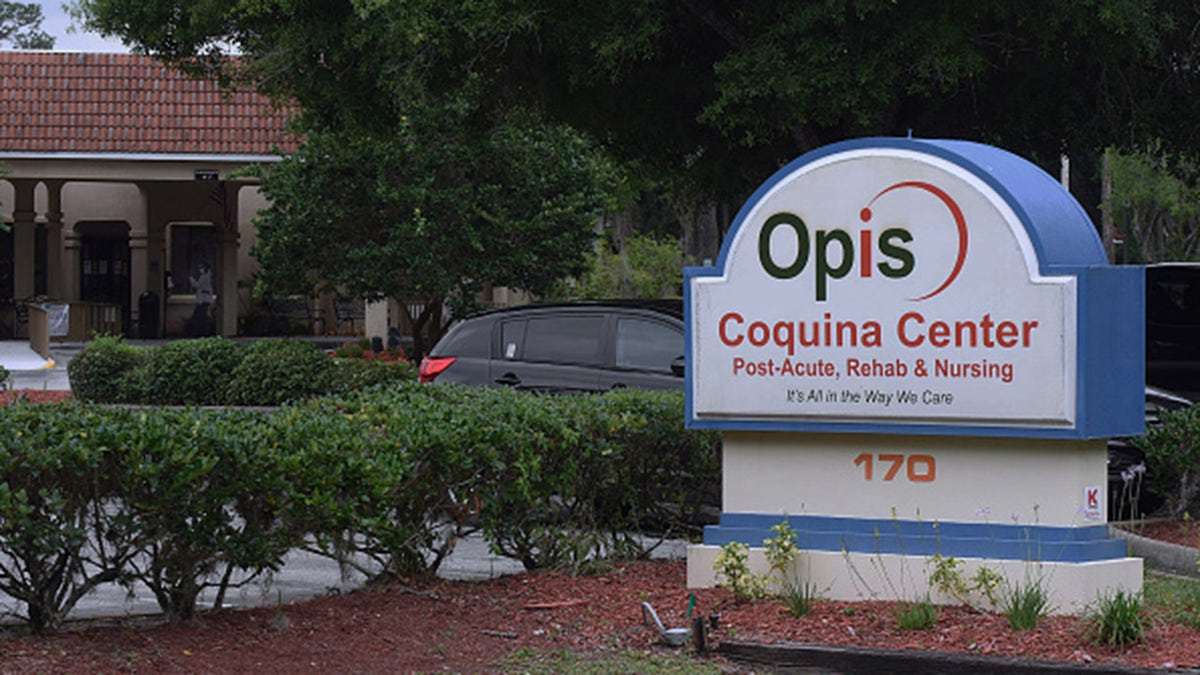Fox News Flash top headlines for September 2
Fox News Flash top headlines are here. Check out what's clicking on Foxnews.com.
By September, it had been about six months since Florida nursing homes had last allowed families to visit vulnerable seniors due to the outbreak of the novel coronavirus.
The restriction had "saved thousands of lives," Emmett Reed, the executive director of the Florida Health Care Association, told Fox News on Wednesday. However, he says it is about time to reunite seniors with family members, noting that facilities have made significant progress statewide since March.
FOR THE FIRST TIME SINCE JUNE, THIS STATE ANNOUNCED LESS THAN 2,000 CORONAVIRUS CASES
"We got a handle on nursing homes, we absorbed the first COVID bunch and our care facilities did a fabulous job at keeping COVID-19 out of their facilities," Reed said.
Currently, Reed said less than 2% of staff and residents have tested positive for the virus after testing facilities statewide.
"They are managing it very well," he said.

The Opis Coquina Center nursing home, one of the 324 long term care facilities in Florida with known COVID-19 cases , on April 25, 2020 in Ormond Beach, Florida. (Photo by Paul Hennessy/NurPhoto via Getty Images)
DESANTIS LIFTING FLORIDA’S CORONAVIRUS-RELATED BAN ON VISITING NURSING HOMES
However, he was quick to note that this doesn't mean facilities will be going back to normal. Rather, Tuesday's order will allow for a "slow reopening, allowing visitation in a safe methodical manner."
During the pandemic, DeSantis had tapped Reed to serve on the Task Force on the Safe and Limited Reopening of LTC Facilities, which developed the recommendations that are the framework for the governor's latest executive order, announced Tuesday.
DeSantis formally announced he would lift the ban on visitations following recommendations from the nursing home task force.
The governor’s order is expected to allow family members to visit their loved ones no more than two at a time, wearing protective gear including masks. Facilities would need to go 14 days without any new cases of COVID-19 among staff or residents to allow the visits. Children under the age of 18 are not yet allowed.
However, Reed believes facilities will prioritize access for essential caregivers who help with activities of daily living, and compassionate caregivers who either come in at end of a resident's life or help them cope when there is a major change in their life such as a death in the family. Most of the time, these essential or compassionate caregivers will be family members or friends of the resident, Reed says.
"I think the natural order to safely open is starting slow and starting with the people that are helping the residents, which will in turn help the staff," he said. “I think you are going to see a focus on the essential caregiver and compassionate caregiver first."
At the same time, Reed believes facilities will also try to figure out how to allow general visitation. However, it won't be a quick process, he said.
"The most important thing is that it is going to take time to put policies in place to safely bring back visitors," he said. In a case where a facility sees even one infection, it will have to wait 14 days until they can allow visitors to come back.
Although Reed says the last six months have been "heartbreaking," he was quick to commend the work staff members were doing throughout the crisis, saying they served as "surrogate family members" for residents.
With drive-by parades and window visits, "they have done an amazing job to keep them [residents] safe and entertained," he said, adding that their actions were "heroic."
"I have to give so much credit to health care workers with what they have done in facilities these last six months," Reed said.
The Florida Health Care Association is the largest advocacy organization for long-term care providers and the elderly in the state, representing more than 82% of the state's 690 nursing centers.
The Associated Press contributed to this report.









































